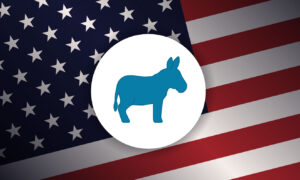The Scoop: How E.L.F. used social media to become the dupe king
Plus: The rise of ‘hybrid AI’ and the EU investigates X. Again.

Inflation over the last few years has everyone trying to save a few bucks where we can.
One major beneficiary of this penny-pinching has been E.L.F., a makeup brand that sells products similar to much pricier wares for a fraction of the cost.
And in some cases, they’re even considered superior to the original – as with one E.L.F. product the Washington Post highlighted that retails for just $14, versus the spendy Charlotte Tilbury version that costs $49.
While much of this magic lies in E.L.F.’s product formulation and manufacturing, there’s a PR story to tell too.
As the Post reports:
E.L.F. was one of the first brands to join TikTok and BeReal, and it recently announced an interactive experience on Roblox. It’s also on Twitch, the live-streaming gaming platform, and has partnered with a popular female gamer.
The brand has “been really mastering disruptive marketing,” said (Delphine Horvath, a cosmetics and fragrance marketing professor at Fashion Institute of Technology), noting its advertising campaigns with actress Jennifer Coolidge and product partnerships with brands such as Chipotle, Dunkin’ Donuts and American Eagle “that create buzz, boost engagement and brand awareness.”
In addition to marketing on these platforms, E.L.F. also conducts social listening – and acts on it, such as in the case of a TikTok livestream with CEO Tarang Amin where customers begged for a specific dupe. Immediately after the stream, he was working with product to make it happen.
Why it matters
Having a great product is half the battle in PR. But the other half is ensuring that customers know about it – and know what your brand is about. E.L.F. stays current with social media trends, not content to stick with what’s already working but always looking for the next big thing and using strategic partnerships to grow their audience.
But just as importantly, once they’ve acquired that audience, they listen to them. They understand their place in the market and work to act responsively as new, viral products rise.
Obviously this market placement won’t work for all or even most brands. But being an affordable imitator has brought huge success for E.L.F., guided by strong audience understanding and reactivity to trends.
Editors Top Picks
- AI turned the PR world on its head in 2023 – but what will happen in 2024? CNN spoke with Marco Argenti, chief information officer at Goldman Sachs, foresees what he calls “hybrid AI,” combining huge LLMs like ChatGPT with smaller, more bespoke AI tools. This combination offers the power of the big models with more data privacy and customization in the smaller models. In what comes as a relief to many, he also predicts that 2024 will be the year these organizations get serious about data privacy, which could open all manner of new applications once there are assurances about how data is used.
- The EU is continuing to circle X, continuing to hammer the site for its lax enforcement of rules and regulations. Today, the New York Times reports it’s investigating the social network for “failure to counter illicit content and disinformation, a lack of transparency about advertising and ‘deceptive’ design practices.” The inquiries into X’s practices have mounted over the last year since Elon Musk purchased the social network and gutted moderation teams and significantly loosened a variety of rules about what can be posted on the site. This is also the European’s Union first time flexing the new powers it was granted last year with the passage of the Digital Services Act, which allows the EU to compel social media sites to more closely moderate their sites. This could have wide-ranging impacts both on X and other social networks operating in Europe.
- A crisis is shaping up in the applesauce industry. Lead has been found in three cinnamon-flavored applesauce brands marketed toward children, NPR reported. The FDA believes that the problem may be tied to the cinnamon flavoring itself and is possibly the result of a cost-cutting decision. Investigations are underway at several Ecuadorian manufacturing plants, underscoring the complex nature of supply chain issues which can ripple around the world and sicken children. This could become a broader crisis for applesauce products and possibly beyond. For companies not yet implicated in the investigation, it’s time to get out ahead of it with transparent, clear communication.
Allison Carter is editor-in-chief of PR Daily. Follow her on Twitter or LinkedIn.







